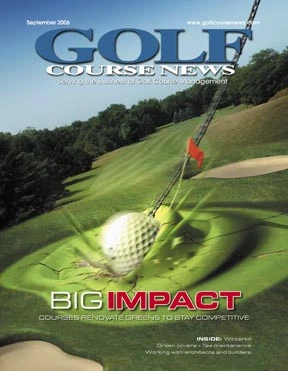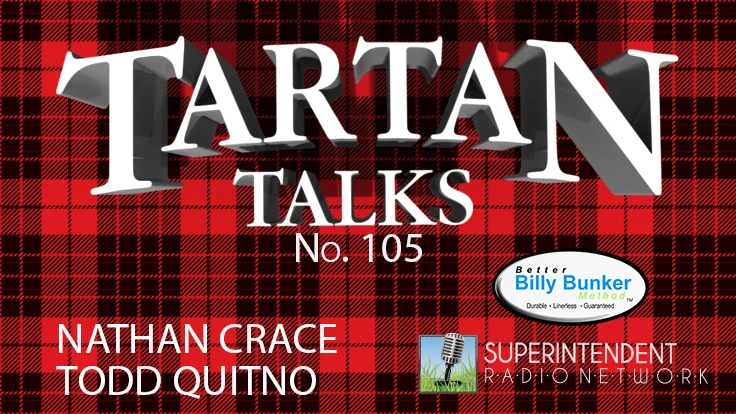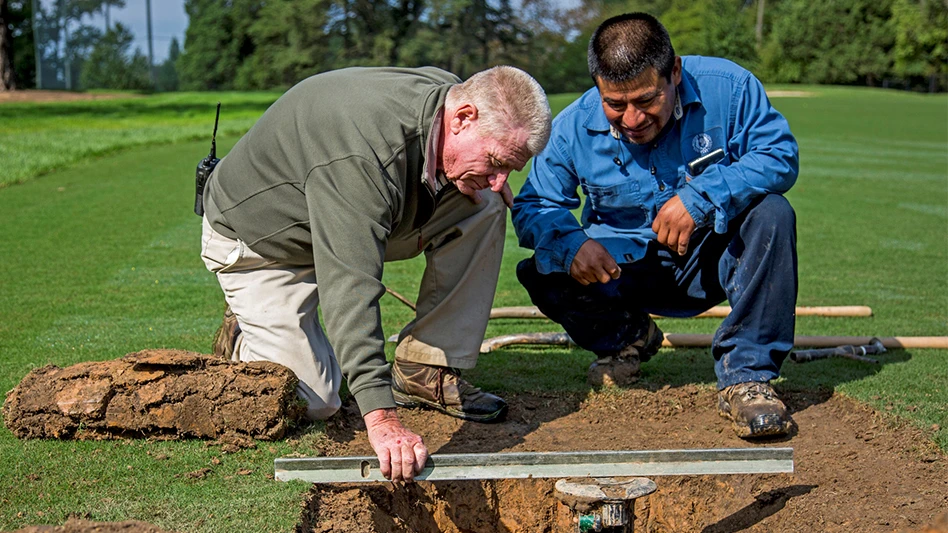If you live in any decent-size American city, I’d like to make a bet with you.
Go outside, get in your vehicle, and drive down any of your community’s main streets. I bet you 10 bucks you see a Subway sandwich shop within 15 minutes.
Subway is the largest franchise in the nation. They’re everywhere – sometimes you’ll see two in the same block in larger cities. Why? It’s relatively cheap to start one – between $100,000 and $200,000 – and people must like their food since they’re stacked up like Japanese driving ranges in most urban areas.
Guess how many Subway shops there were in the United States in 2003?
More than 15,500, according to Entrepreneur magazine. Hmmmm ... why does that number sound familiar? Oh, I know! That’s also how many golf courses there were in the country in 2003.
Subway has continued to grow during the past few years while golf has flattened out, but the comparison is still stunning: The most ubiquitous franchise operator in the country has roughly the same number of units the golf industry does. Even scarier is that there are 5,000 more golf courses in the United States than McDonalds. Damn.
And, by the way, according to fast-food market analysts, more than three-quarters of all Subways are profitable. Think the golf industry can touch that?
Doubt it.
Another thing: Our customer base is around 25 million, allegedly. The fast-food market is roughly – oh, let me think for a minute about how many Americans eat food – let’s say 300 million.
What else can we learn from our little Subway versus the golf industry compare-and-contrast exercise?
The basics. Like most food establishments, Subway’s core formula consists of three elements: cheap, fast and convenient. The average customer eats for just $5.60, is in and out of the place in 10 minutes and, as noted earlier, you can’t swing a dead cat without hitting one of their locations.
Unique selling proposition. Subway’s USP is pretty simple: “Eat fresh.” You watch them make the subs, they bake their bread daily, and everything looks pretty clean and nice compared to the typical, warmed-over, greasy-spoon chow you’d get for a sawbuck.
Brand. Subway also has a great branding niche compared to McDonalds and the other artery-clogging burger joints. They offer a “healthy” alternative. Thanks to one formerly obscure, formerly fat guy – the now-famous Jared Fogle – they were able to position their product as a weight-loss tool. That is – to quote the Guinness beer commercials – “brilliant!”
Marketing. How many times have you seen that formerly fat guy on TV, in the newspaper, on billboards or wherever? Subway franchisees contribute 3.5 percent of revenues back to the Mother Ship to promote the brand. Thus, they are one of the best known names on the planet.
Service. I defy you to find a Subway where you’re not greeted with a smile and served fairly quickly. It’s part of the culture. Another factor: The owner is often on-site, visible and usually cleaning tables or otherwise actually working.
Value. For four or five bucks, you get a fresh sandwich, a Coke, a bag of chips and a cookie. You can walk into a Subway in Seattle or South Padre Island and expect to get exactly the same thing. You leave feeling pretty good about the fact you didn’t just ingest 1,200 calories of saturated fat and a shaker full of salt for lunch.
So, how does the Subway story compare to most golf courses?
The basics. Fast, cheap and convenient? The biggest challenges facing the golf industry are speed of play, cost and access. Every golf course owner in the country should wake up every morning thinking, “How can I speed things up, control costs and bring more people to the facility?” Does your facility measure up to that?
Unique selling proposition. Why should I, an average player with some dough in my pocket, choose your facility versus the dozens (or hundreds) of other options in my area. What exactly are you selling? Are you the most challenging (i.e., really hard)? Are you the best conditioned? Are you the least expensive for the quality of the experience? Those are good questions, but ask yourself what one thing separates you from the pack? Brainstorm about the idea with the rest of your team. Ask your best customers through surveys. Find out what your USP is, and stick with it in every aspect of your marketing.
Brand. When a potential customer hears the name of your course, what’s the first thing that comes into his or her mind? Too expensive? Too hard? Really fun? Great people and service? Crappy maintenance or great condition? If you don’t know, find out. Conduct those surveys, and dig down to find out what customers think. Subway boiled their branding statement down to two words: Eat fresh. Can you do that?
Marketing. Does your facility subscribe to the “if you build it, they will come” philosophy? (We call this “Field of Dreams” marketing. In short, you’re dreaming if you think it will work.) Or, are you taking your brand and USP to the golfing masses through targeted print, radio and promoted word-of-mouth marketing? Do you have a good Web site that puts your USP and location right on the home page? Do you have an e-newsletter that promotes monthly specials and informs players/members about maintenance schedules and other events? Do you collect e-mail addresses routinely as part of the check-in process? If not, why not?
Service. Are your first-time customers greeted warmly by everyone from the bag boy to the person who checks them in? Or, are they treated like a nuisance by some wannabe junior assistant pro who’s never had any customer service training? Are novices made to feel comfortable and welcome? Are a few tips and pointers offered by the starter? Do you give customers a ball-mark repair tool or some other keepsake?
Value. Yes, I know most golfers equate the value of their experience with how well they happen to play that particular day. But, you can influence that by paying attention to the factors noted above. Think about what you value when you visit another business. Is it the service? Quality of goods? Convenience?
I can’t answer any of those questions about your facility, but you can. There’s never been a better time to take stock of your assets as an attraction for customers. Your assets are what you do best. Your job is to let customers know about them. Subway has this concept down cold. Do you? GCN

Explore the September 2006 Issue
Check out more from this issue and find your next story to read.
Latest from Golf Course Industry
- Beyond the Page 65: New faces on the back page
- From the publisher’s pen: New? No way!
- Indiana course upgrades range with synthetic ‘bunkers’
- Monterey Peninsula CC Shore Course renovation almost finished
- KemperSports and Touchstone Golf announce partnership
- PBI-Gordon Company hires marketing manager Jared Hoyle
- Mountain Sky Guest Ranch announces bunker enhancement project
- GCSAA names Joshua Tapp director of environmental programs





